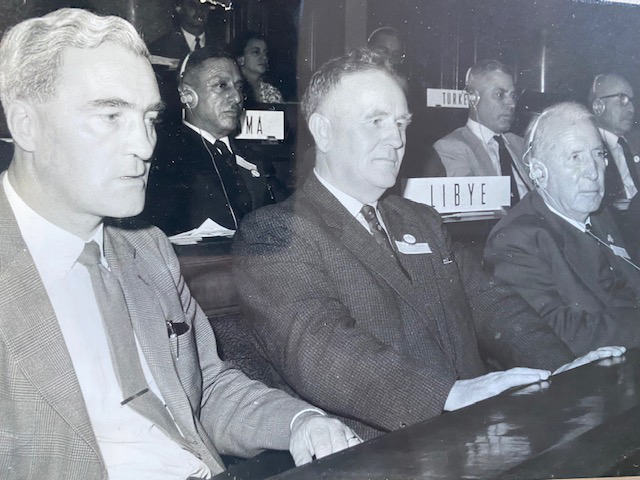THE Clare Labour Party will this Friday host a special event in Ennis to remember the life of Clare politician Patrick Hogan.
Guest speakers at the seminar, which will be held in the Old Ground Hotel at 7.30pm, will include Labour Party Leader Ivana Bacik TD, SIPTU General Secretary Joe Cunningham, TSSA Union’s Manuel Cortes TSSA Union, and historian Francis Devine among others.
Clare Labour Party chairman Denis Vaughan described Patrick Hogan as “one of the most influential Irish political figures in the twentieth century”.
Hogan became the first Labour TD elected in Clare, subsequently becoming a senator and eventually the longest serving Ceann Comhairle, most famously presiding over American President John F Kennedy’s address to the Oireachtas in June 1963.
He was born on 10 October 1885, the only son of Patrick Hogan, a labourer, and Bridget O’Connor of Culleen, Kilmaley.
In the 1901 Census, he was listed as a House-to-House Postman. By 1911, living in Mitchelstown, Hogan was entered as Pádraig Ó hÓgáin and as Oide na Gaedhilge, a teacher of Irish.
Active in Conradh na Gaeilge and the Irish Volunteers, he had embraced all aspects of the cultural revival and struggle for self determination.
Active in Limerick in 1916, he was deported and imprisoned in Wandsworth and Reading jails before returning to fight in the War of Independence. In 1921, he was tried by a Military Court ‘for levying war against the King’.
He had begun writing poetry, prose and plays and was a regular contributor – in English and Irish – to the Irish Transport & General Workers’ Union (ITGWU) newspapers the Irish Worker and Workers’ Republic, often under the pseudonym ‘An Clarín Dubh’.
His play Róisín’s Robe was produced in the ITGWU’s Liberty Hall on the eve of the 1916 Rising.
He wrote throughout his life and broadcast on Radio Éireann. His novel Camps on the Hearthstone (1956) was a fictionalised account of his time in the IRA. His song, ‘A Shawl of Galway Grey’ was – in modern parlance – a huge international hit, not least among Irish-Americans.
In this Decade of Centenaries, Hogan’s writings are being re-discovered to respectful acclaim.
Hogan became active in the ITGWU and served as Ennis Branch Secretary and as an officer of Ennis United Trades Council.
He constantly campaigned on behalf of the Clare poor both at Dáil, County and Urban District Council levels.
He was dissuaded from contesting the 1922 Dáil election by Anti-Treaty-elements but won a seat in 1923 to begin, effectively, a lifetime of service in the Oireachtas – he was a Senator, 1938-1943.
He was elected Ceann Comhairle from 1951-1967, most famously presiding over American President John F. Kennedy’s address to the chamber in June 1963.
Hogan was called to the Bar in 1936, his legal practice informing his constituency and trade union work.
He died in office on 24 January 1969. Pre-deceased by his wife Annie Mackey who died in 1940, he had two sons, Brian and Patrick, and a daughter Úna.
He was fondly remembered, locally, nationally and internationally. The tributes were many, affectionate and acclaiming.
In 2000, the late Ennis artist Peadar McNamara installed a Millennium Frieze in Kilmaley Church to portray the history of the parish. Patrick Hogan’s portrait features prominently.
“It is a unique and fitting tribute to an honoured son,” said Mr Vaughan. “Patrick Hogan was a principled and tireless worker on behalf of Clare’s under-class. A respected Dáil member and Ceann Comhairle, he was Chair Clare County Council and active Urban District Councillor, always fighting for the marginalised.
“For today’s Labour Party members, Hogan’s legacy should be recognised and – as he would have wanted himself – built upon by active organisation and an unshakeable sense of class duty.
“Pádráig Ó hÓgáin – molaimid bhur n-éachtaí ar son an lucht oibre sa Chlár,” he concluded.

